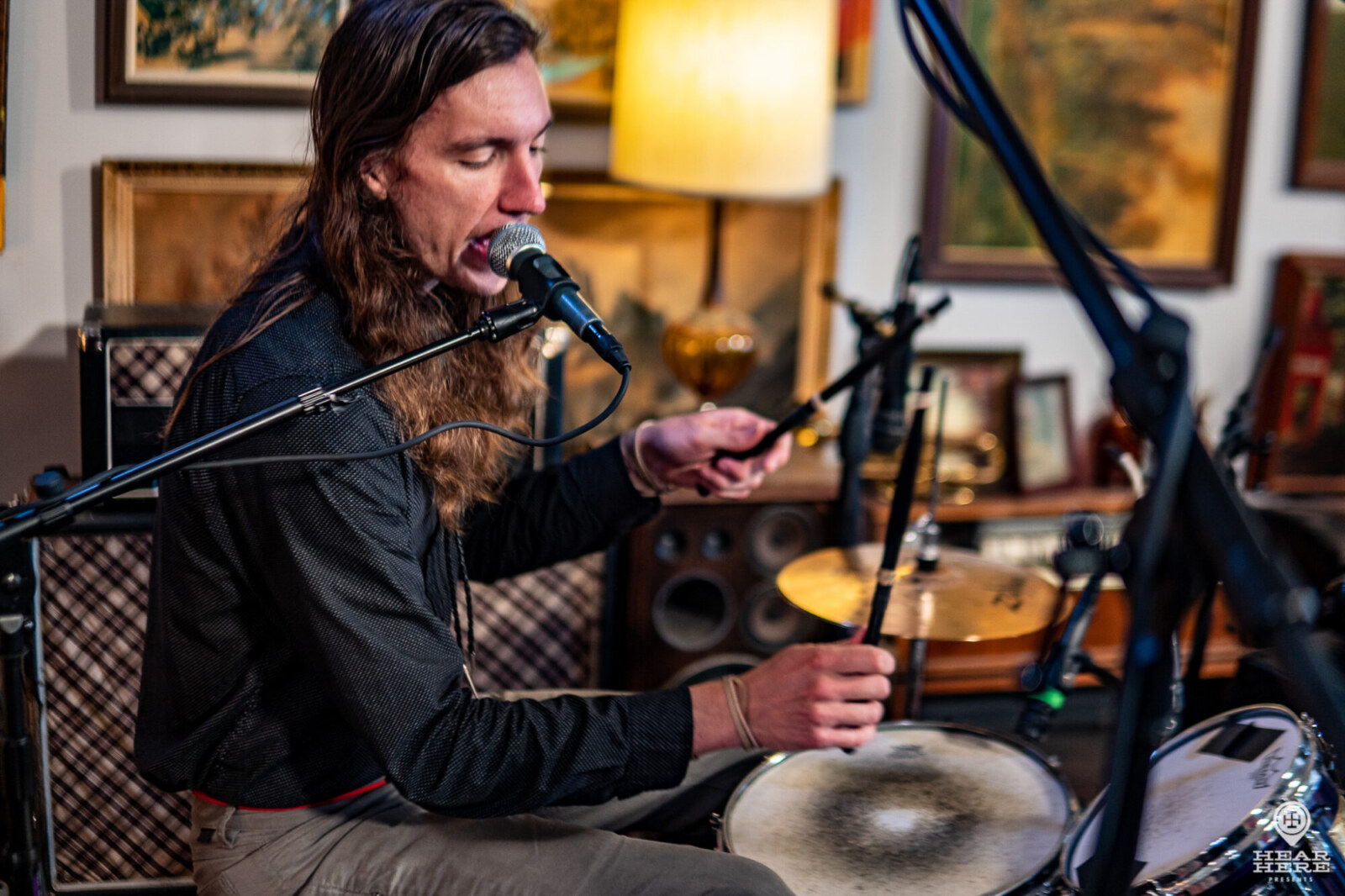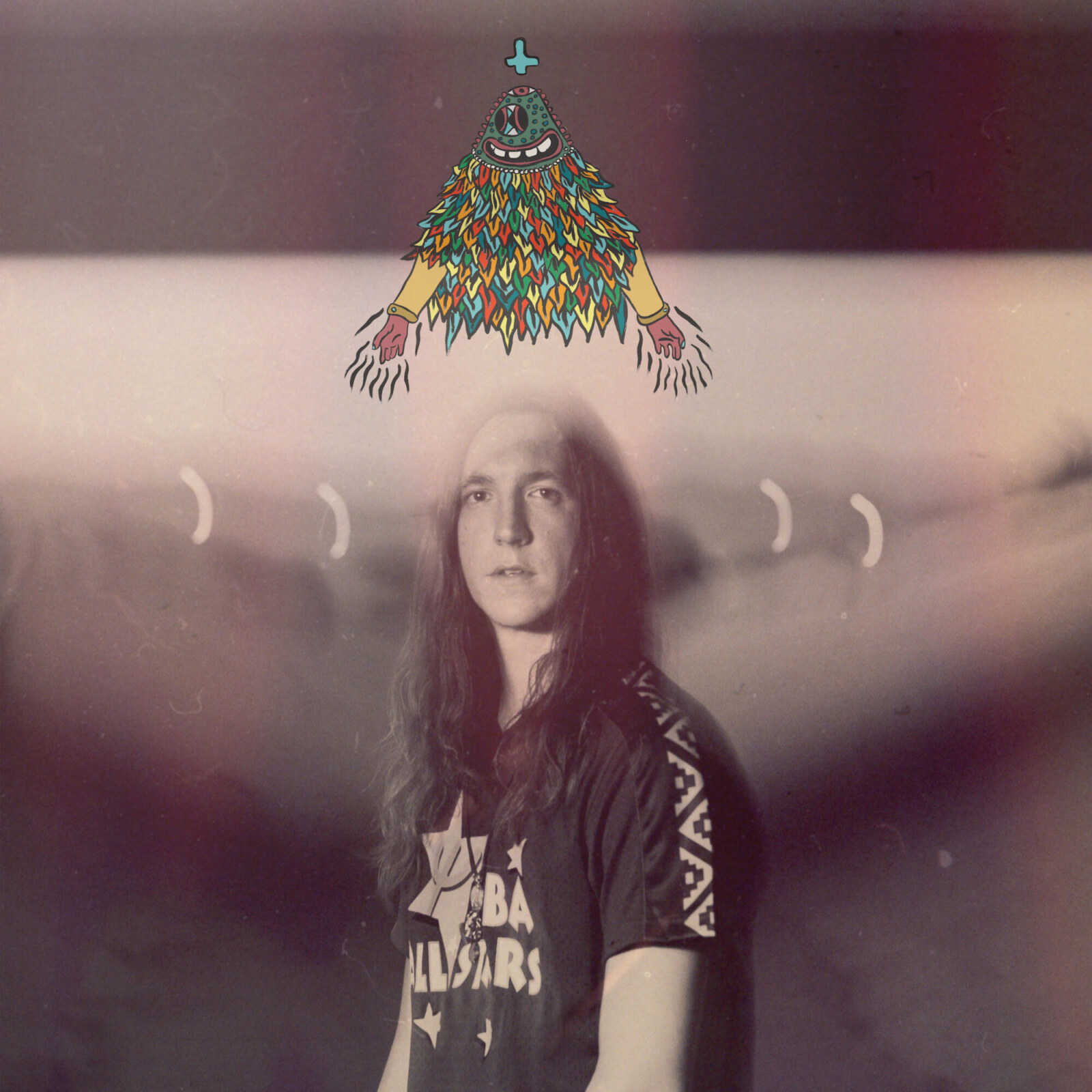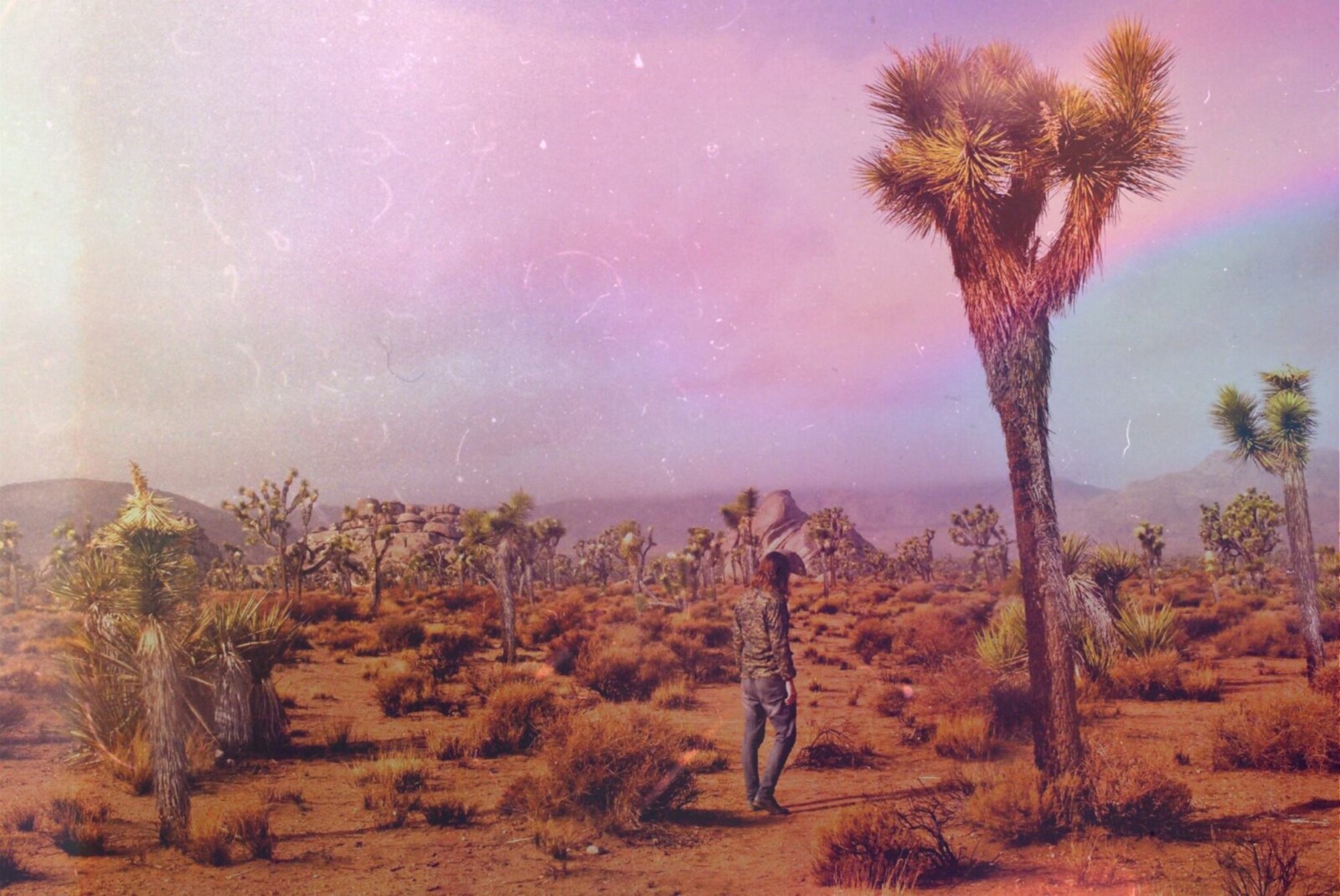Donivan Berube | Interview
A month after turning 17, Donivan Berube left home and disassociated himself from the church of Jehovah’s Witnesses, thus saying goodbye to his entire family and all of his friends, forever. Then he took off to travel the continent and live out of a tent, touring internationally while releasing albums on small labels as Blessed Feathers. In the time since, he’s worked as an English teacher in Huaycán, Peru, a librarian in Big Sur, California, a luthier in Arizona, and taken solo long-distance bicycle tours across the United States and Iceland.
“Love, loss, and pursuit of life”
You’ve been in music for quite some time now. How has your approach to music making changed during the last years?
Donivan Berube: Right, well I started out as just a sheltered pre-teen in a religious cult learning how to write and record songs from the isolation of my bedroom. Association with the outside/secular world was highly frowned upon while we awaited the coming apocalypse, so I was left with plenty of time alone to nurture those passions for music. Over time my production abilities and recording techniques have strengthened to allow for a greater representation of the songs and emotions I aim to capture, although of course it’s a process that will always allow room for improvement. As years passed and my understanding of those experiences grew, I leaned toward a less-impressionistic style of songwriting in favor of more biographical themes in love, loss, and pursuit of life.

Would you like to talk a bit about your background and influences?
Cult escapism and conservative religious upbringings can certainly bring forth their own set of reckonings or self-reconciliations later on in adulthood. These experiences become inarguably manifest in your identity, personality, or individuality whether you’re aware of their presence or not, whether you welcome their presence or not. For many years I’d normalized those experiences in an attempt to move on, but only more recently have pursued closer examinations to understand the ways in which they’ve shaped my life and thinking.
Even as the youngest of seven kids, mine wasn’t a musical family. So it took quite some time for influences there to foster organically. Life pivoted drastically away from the cult teachings and spiritual focus toward a new meaning derived from travel, food, friendships, and the innumerable differences in worldly experiences, the varied ways in which lives are lived as opposed to that singular path I’d been born into. Musically speaking, though, my coming of age in the era of modern indie rock and guitar music is offset by my love of classic jazz and old soul bands.
Do you discover new aspects of your songs developing in front of an audience?
David Byrne talks about this in his book ‘How Music Works’, that we may not realize the ways in which performance affects songwriting and songwriting inversely affects its performance. Some songs aren’t even on the table for live shows because they’re too complex to replicate without a massive band. So while the logistics or mechanics of how a song will work live definitely comes into play throughout its writing and recording, they don’t necessarily take shape for me over the course of their performance.
In all our years touring as Blessed Feathers, the drummer was always the hardest position to fill and keep filled. We played and I play most instruments on all the recordings, so finding the right drummer who can play all the parts but also who we can live with for weeks-on-end trapped inside of a tiny vehicle proved reliably difficult. Nowadays I solved that problem by playing the drums myself while singing, with a revolving cast of friends to play all the guitars and things.
How are you coping with the current pandemic?
Since any notion of touring and travel was frozen in 2020, I’ve tried redirecting that toward domestic bike tours and camping trips. I live next door to Saguaro National Park in Tucson, Arizona, so biking is a year-round option here. I took the COVID closures as an allowance for uninterrupted coffee breaks and music-making, which eventually became the new record ‘Truth in Constant Change for Now’.
“The album [‘Truth in Constant Change for Now’] becomes a book of that period in life”
‘Truth in Constant Change for Now’ is your latest album. How did it come together? What kind of album did you have in mind and are you satisfied with it?
By the time I’ve finished a song or an album, I’ve listened to it so many thousands of times over, so acutely and analytically that there isn’t really any space left to enjoy it. In this way, the album becomes a book of that period in life that I can effectively shut and step forward from. I don’t set out with the overall album goal idealized in mind, I just lean into a handful of new songs and the album’s theme makes itself known as I get more deeply involved.
What would you say influenced you the most on this latest album?
Over the course of this year’s COVID quarantine, every news headline might as well have come with a question mark. Reports were conflicting, information was ongoing, and change quickly became the only constant. Musical themes therefore grew to weave intimacy and isolation into what I call a polyrhythmic heartsong of jazz chords and sudden redirection. If “love became the walls in which to quarantine us,” then “what got between us?”

How would you compare it to your previous album?
Sonically, there’s a similar degree of atypical song structure. When writing and arranging the tunes, I try to avoid standard verse-chorus-verse-chorus patterns in exchange for transitions and compositions that I find more interesting. One song could be parts of three songs that are woven together but thematically tied. I played a lot of electric piano on this record, sometimes with ‘Bitches Brew’ jazz chords and other times as a percussive glue. My older records were centered around multitudinous vocal harmonies, whereas ‘Truth In Constant Change for Now’ is more focused and rhythmic while awash in a My Bloody Valentine amount of ambient guitars. Some friends collaborated long-distance by recording from their homes in Brooklyn, New York or Milwaukee, Wisconsin as well.

Let’s end this interview with some of your favourite albums. Have you found something new lately you would like to recommend to our readers?
I keep a running list of yearly favorites, so my Album of the Year in 2020 was either ‘We Are Sent Here By History’ by Shabaka & the Ancestors or ‘What Kinda Music’ by Tom Misch & Yussef Dayes, both masterful collections of jazz and soul with infinite replayability. Donivan Berube
Klemen Breznikar
Donivan Berube Official Website / Facebook / Instagram / Twitter / Bandcamp / YouTube / SoundCloud / Spotify / Apple Music



